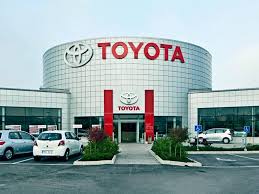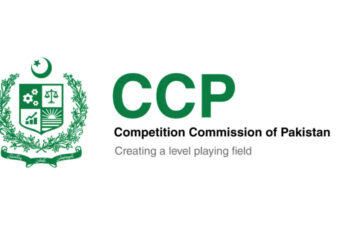ISLAMABAD: Indus Motors Company (IMC), the assembler of Toyota vehicles in Pakistan, has indicated its intention to start importing five-year-old used cars, leveraging Toyota’s global network to procure vehicles in bulk, ensure regulatory compliance, and deliver after-sales services through its authorised dealerships.
In a letter to Prime Minister’s Special Assistant Haroon Akhtar Khan, a copy of which is available with Newzshewz, IMC CEO Ali Asghar Jamali expressed concern that the government is ignoring the industry’s voice and accelerating “de-industrialization” of Pakistan’s engineering and manufacturing sector.
The Economic Coordination Committee (ECC) has already approved commercial imports of five-year-old used cars with 40% additional duty till June 30, 2026, which will be reduced by 10% annually to zero. The government argues that the local auto industry must upgrade itself or face competition under new regulations that will not allow “substandard” assembling and manufacturing.
Pakistan’s auto industry hosts 13 global brands—including Toyota, Honda, Suzuki, and Hyundai—with 1,200 auto parts makers, supporting 1.5 million jobs and attracting $5 billion investment in tooling, facilities, and technology transfer. Pakistan is among the few countries that manufacture all four vehicle segments—cars, trucks, buses, tractors, and motorcycles—despite historically low volumes.
Jamali cautioned that Pakistan’s ongoing tariff liberalisation drive, under commitments to the IMF and World Bank, risks undermining the sector. Though the auto industry was exempted under the Auto Policy AIDEP 2021-26 until June 30, 2026, the government is now considering steep tariff cuts: (i) customs duty from 100–50% to a flat 15%;(ii) regulatory duty from up to 90% to zero within five years; and (iii) additional customs duty from 7% to zero in four years
In parallel, the government is opening commercial imports of used cars without any age limit—a policy Jamali described as “only seen in the poorest countries in Africa and Pacific islands.”
Currently, used car imports are allowed only for overseas Pakistanis, but this channel is being exploited commercially, fueling capital flight through Hundi and Hawala and raising concerns under FATF’s monitoring of money laundering and terror financing.
Citing international examples, IMC highlighted robust frameworks in New Zealand and Australia that regulate used car imports through pre-export inspections, strict emissions and safety checks, and mandatory after-sales guarantees. It proposed Pakistan adopt similar measures, including: (i) pre- and post-shipment inspections via accredited agencies in exporting countries ;(ii) electronic data exchange with customs authorities ;(iii) pre-shipment certification on emissions, crash safety, and roadworthiness ;(iv) post-shipment verification within processing zones ; and (v) binding arrangements for spare parts and after-sales support for at least 10 years
Fiscal measures recommended by the industry include reducing depreciation rates for tax purposes, rationalizing duties on small cars, imposing a carbon levy based on vehicle age, and fixing a minimum import trade price in consultation with stakeholders.
Pakistan’s auto industry has strongly opposed both tariff reductions and the opening of used car imports, warning they will “devastate the industry in an irreversible way” and dismantle Pakistan’s auto sector built over three decades.
Despite its opposition, IMC said Toyota’s own global capabilities would allow it to efficiently import used vehicles into Pakistan, if permitted. “Thirteen automotive brands in Pakistan warn the government of deindustrialization and rising unemployment due to trade and tariff liberalization policies. They may be forced to diversify into imports in ways that conflict with the ‘Make in Pakistan’ initiative,” Jamali concluded.
Ends















